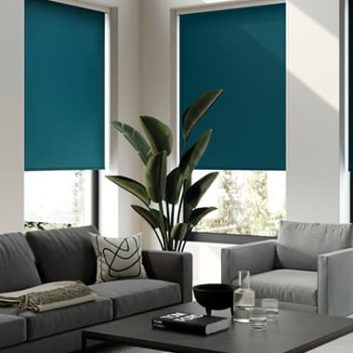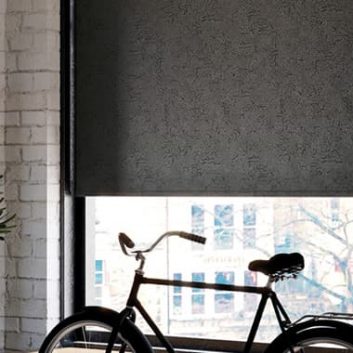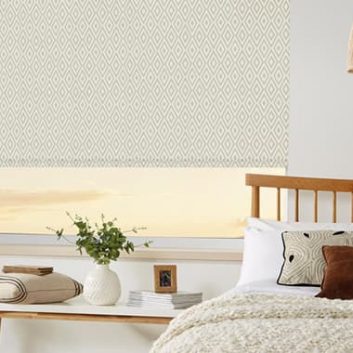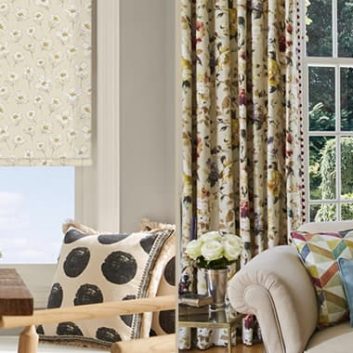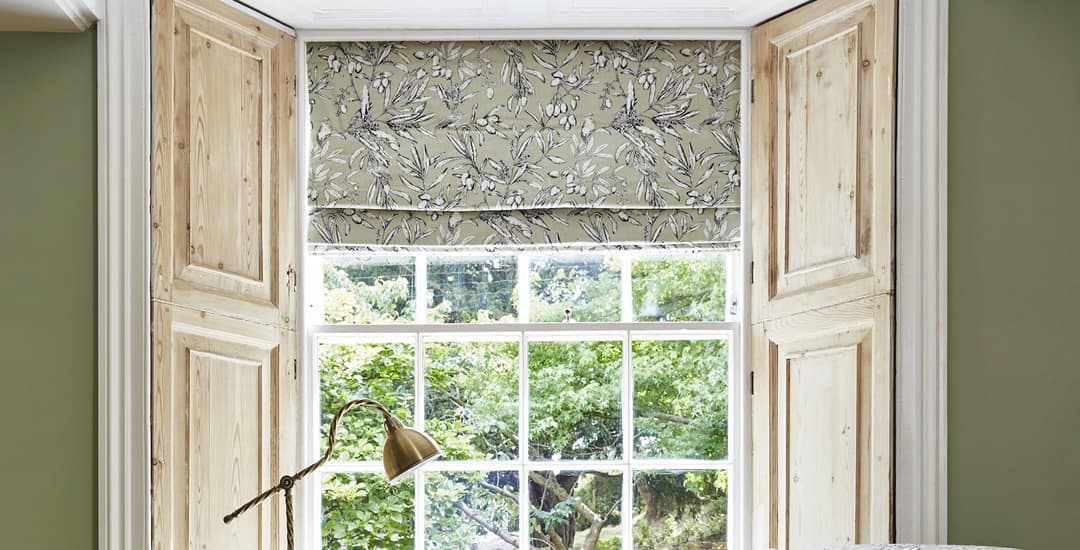
They certainly can be in terms of certain functions and applications, which can come as a surprise to many people because Roman blinds are generally thought of as being the most ornamental or visually impressive type of blinds overall; traits that we don’t generally associate with being workmanlike or practical!
However, much as how I can manage a full sprint in 5” heels if this skill should ever be called for, so too are Roman blinds perfectly functional and practical for certain purposes and applications.
With that said, there are a couple of scenarios in which Roman blinds aren’t practical and would not be a good choice; much as how whilst I can run in heels and am awesome at unsolicited relationship advice, I’m not the sort of woman you’d want around in some kind of mathematics-related emergency, nor in any situation in which the survival of the species depended on my ability to display a reasonable degree of common sense.
In this blog post, I’ll tell you about both what makes Roman blinds practical, and when/how not to rely on them. I’ll keep my relationship advice to myself for now…
In what ways are Roman blinds practical?
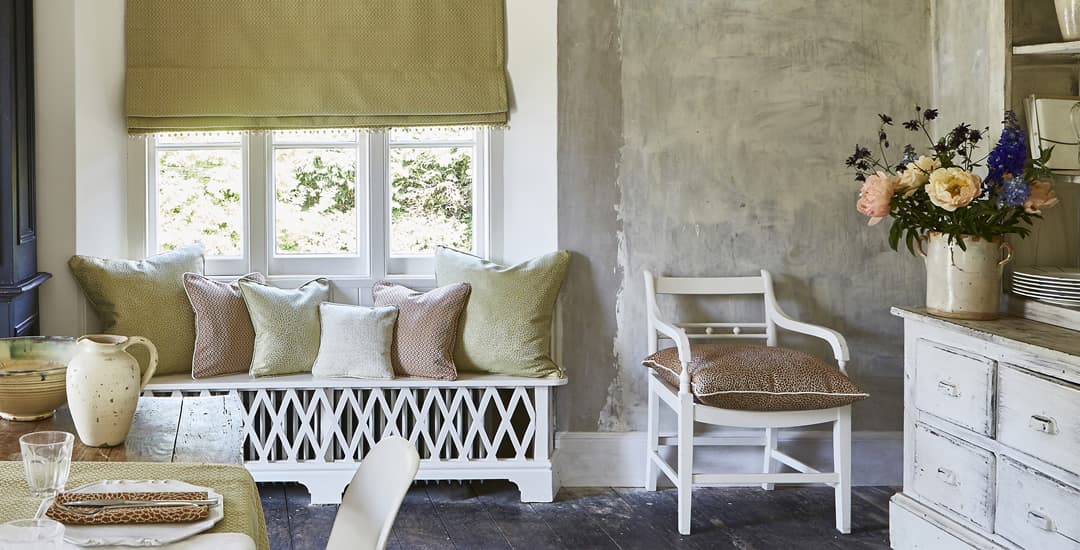
Roman blinds fulfil both the letter and the spirit of the job description we supply to our prospective candidate blinds – must block out light, cover window, preserve the modesty of the interior of the room, look good (according to individual tastes) and not be minded to accidentally kill anyone.
So, Roman blinds are eminently practical in these respects; they can be used to block light (block light entirely in the case of blackout Roman blinds) and protect those inside from the view of those outside. They come in a wide range of different fabric colours, patterns, and types, and meet or exceed all of the relevant/current British standards on blinds and child safety.
The fact that they look so chic whilst doing this doesn’t detract in any way from their functionality; and in fact, a good quality made-to-measure Roman blind will last for at least a decade or possibly much more in good cosmetic and functional order.
Are Roman blinds practical as blackout blinds?
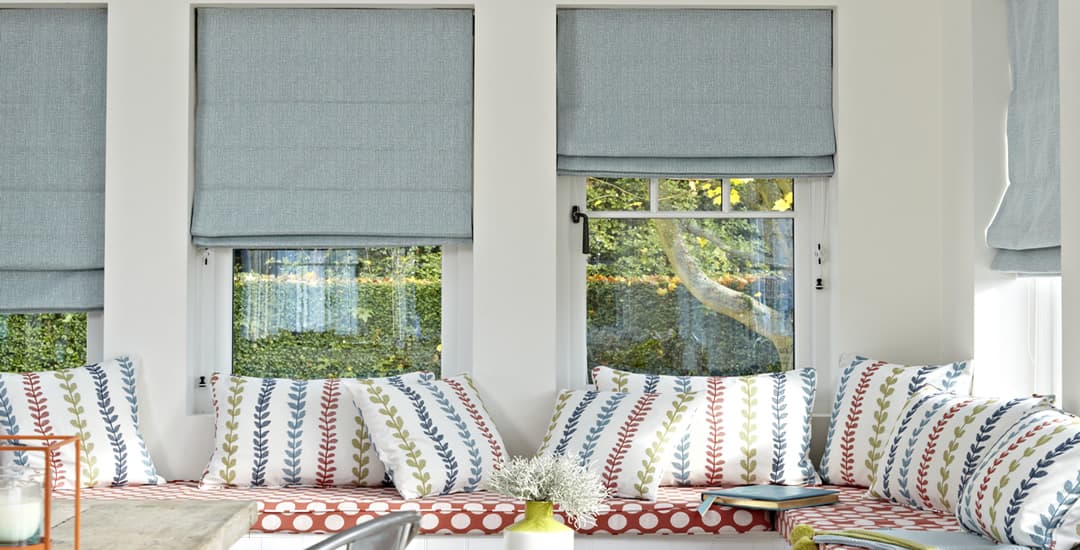
Yes, if you choose your Roman blind to be made with a special blackout lining, they’re one of the most efficient blackout blinds you can buy. Even a regular Roman blind will darken a room very effectively, as they’re made of thick, good quality fabrics, but blackout Roman blinds are a step above this again.
In fact, it can be argued that Roman blinds make for better blackout blinds than almost any other alternatives, as they’re made of one sheet of fabric and so don’t have slats or louvres that may have tiny gaps for lift cords, or between the slats/louvres to let light in.
Are Roman blinds practical to insulate a window?
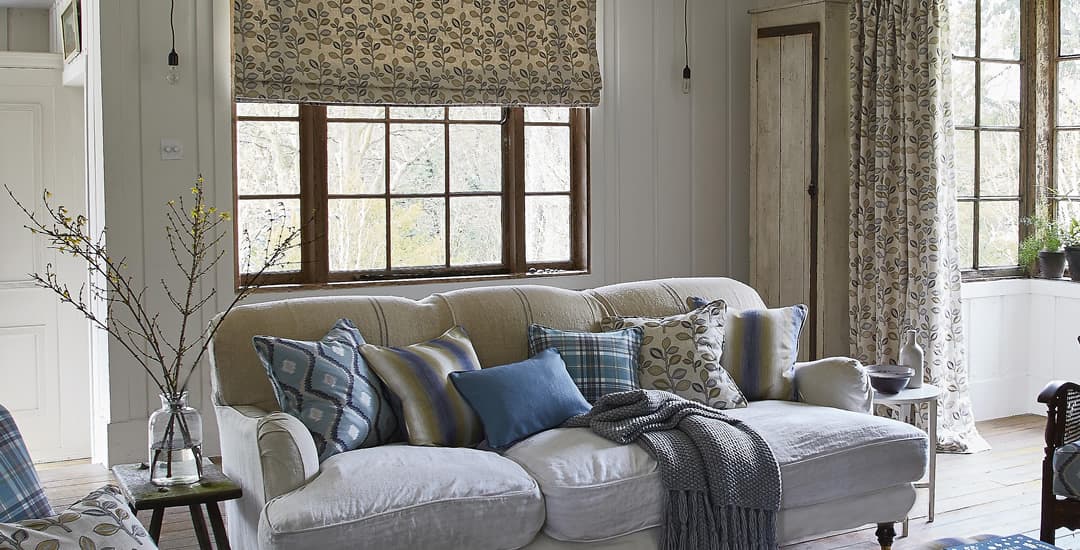
Yes, again, they’re one of the best blinds you can buy to insulate. Any type of blind or window covering will insulate the window to an extent when the blind is closed, but because Roman blinds are made of such thick fabric and again, because it is comprised of one uninterrupted sheet, they’re very efficient insulators. They can also be made with a special thermally insulating blackout lining to further increase their efficacy.
Are Roman blinds practical for bathrooms?
Noooo. We’re now getting down into the realms of functions that Roman blinds aren’t well suited for; and generally, bathrooms and Roman blinds aren’t a good match. This is because Roman blind fabrics aren’t waterproof, and bathrooms are uh, kind of full of water; both in terms of direct sources of it from the basin, bath, shower, and so on, and in terms of condensation and steam from these places when the hot water is deployed.
Roman blinds that get wet or that absorb condensation regularly may not ever really get the chance to dry out properly, and contact with water can cause water marking, dyes to run, and fabrics to perish, and even allow mildew to grow.
Whilst Roman blinds can work in some bathrooms that are very well ventilated and that don’t see a lot of splashing, I would generally advise against them.
Are Roman blinds practical for kitchens?
No, for the same reasons as I mentioned above regarding Roman blinds in bathrooms; plus a couple of other reasons besides.
The fact that Roman blinds aren’t waterproof will tend to be a problem in most kitchens, due to once more, proximity to sources of water and also, exposure to humidity/steam from cooking.
Added to this, the cooking itself can soon cause problems. The fabric of a Roman blind will absorb cooking smells and harbour them; plus the fabric will also collect particles of vapourised cooking fat if you fry things regularly, both contributing to the cooking smells your blind will harbour and also, helping to attract dirt to stick to the fatty film. This cannot really be cleaned away effectively, as Roman blinds can’t be washed/laundered, only specialist dry-cleaned.

